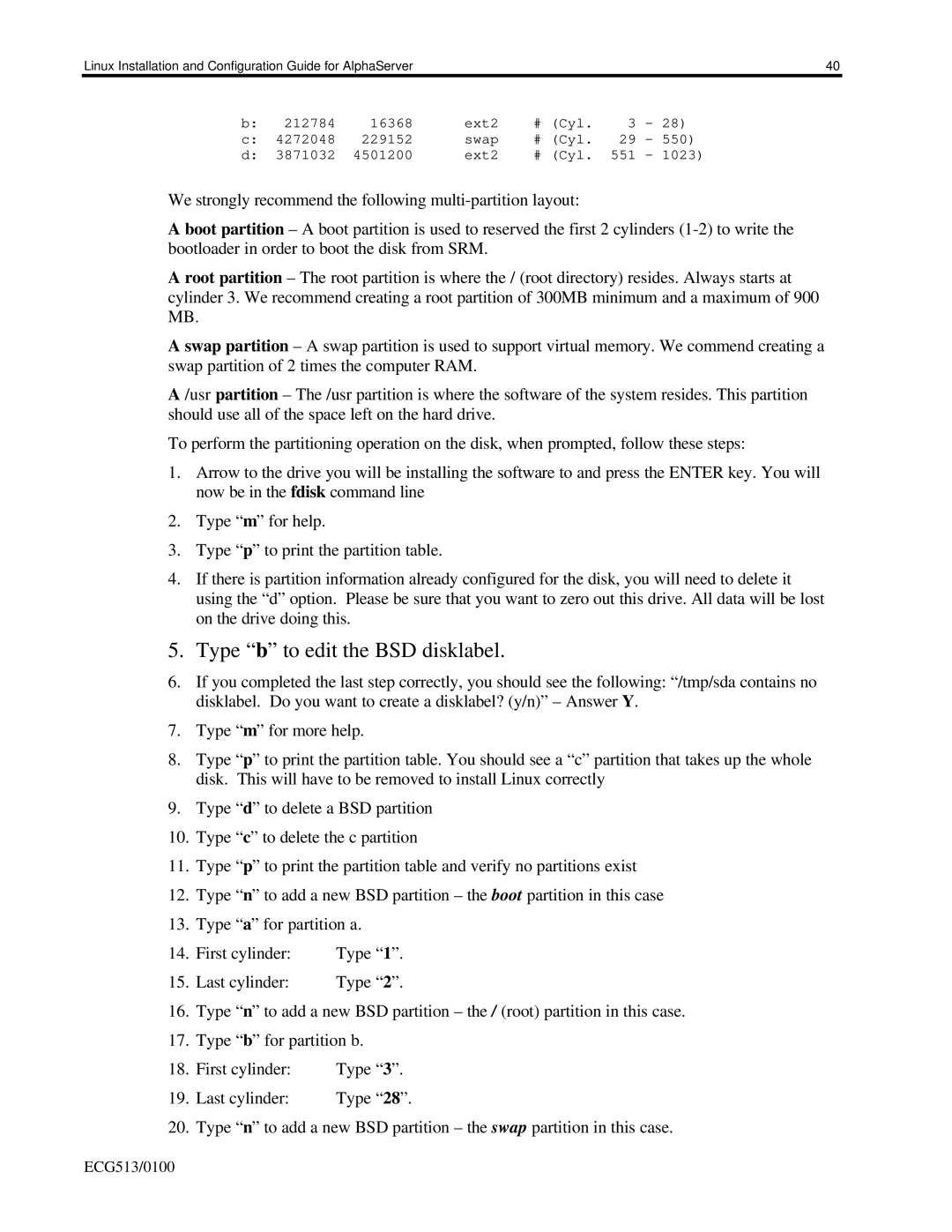Linux Installation and Configuration Guide for AlphaServer |
|
|
|
|
| 40 | ||
b: | 212784 | 16368 | ext2 | # (Cyl. | 3 | - 28) | ||
c: | 4272048 | 229152 | swap | # | (Cyl. | 29 | - | 550) |
d: | 3871032 | 4501200 | ext2 | # | (Cyl. | 551 | - | 1023) |
We strongly recommend the following
A boot partition – A boot partition is used to reserved the first 2 cylinders
A root partition – The root partition is where the / (root directory) resides. Always starts at cylinder 3. We recommend creating a root partition of 300MB minimum and a maximum of 900 MB.
A swap partition – A swap partition is used to support virtual memory. We commend creating a swap partition of 2 times the computer RAM.
A /usr partition – The /usr partition is where the software of the system resides. This partition should use all of the space left on the hard drive.
To perform the partitioning operation on the disk, when prompted, follow these steps:
1.Arrow to the drive you will be installing the software to and press the ENTER key. You will now be in the fdisk command line
2.Type “m” for help.
3.Type “p” to print the partition table.
4.If there is partition information already configured for the disk, you will need to delete it using the “d” option. Please be sure that you want to zero out this drive. All data will be lost on the drive doing this.
5.Type “b” to edit the BSD disklabel.
6.If you completed the last step correctly, you should see the following: “/tmp/sda contains no disklabel. Do you want to create a disklabel? (y/n)” – Answer Y.
7.Type “m” for more help.
8.Type “p” to print the partition table. You should see a “c” partition that takes up the whole disk. This will have to be removed to install Linux correctly
9.Type “d” to delete a BSD partition
10.Type “c” to delete the c partition
11.Type “p” to print the partition table and verify no partitions exist
12.Type “n” to add a new BSD partition – the boot partition in this case
13.Type “a” for partition a.
14. | First cylinder: | Type “1”. |
15. | Last cylinder: | Type “2”. |
16.Type “n” to add a new BSD partition – the / (root) partition in this case.
17.Type “b” for partition b.
18. | First cylinder: | Type “3”. |
19. | Last cylinder: | Type “28”. |
20. | Type “n” to add a new BSD partition – the swap partition in this case. | |
ECG513/0100
